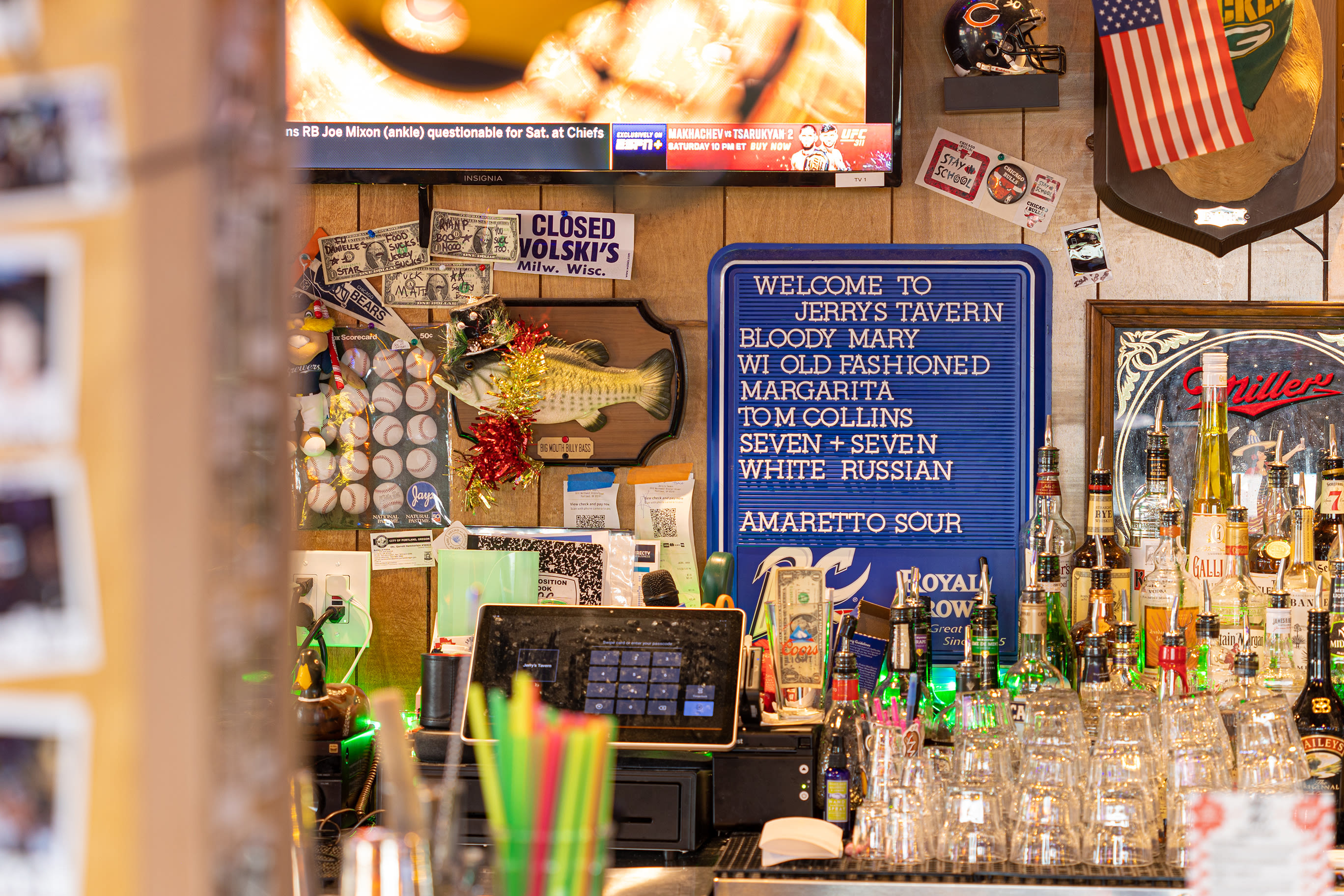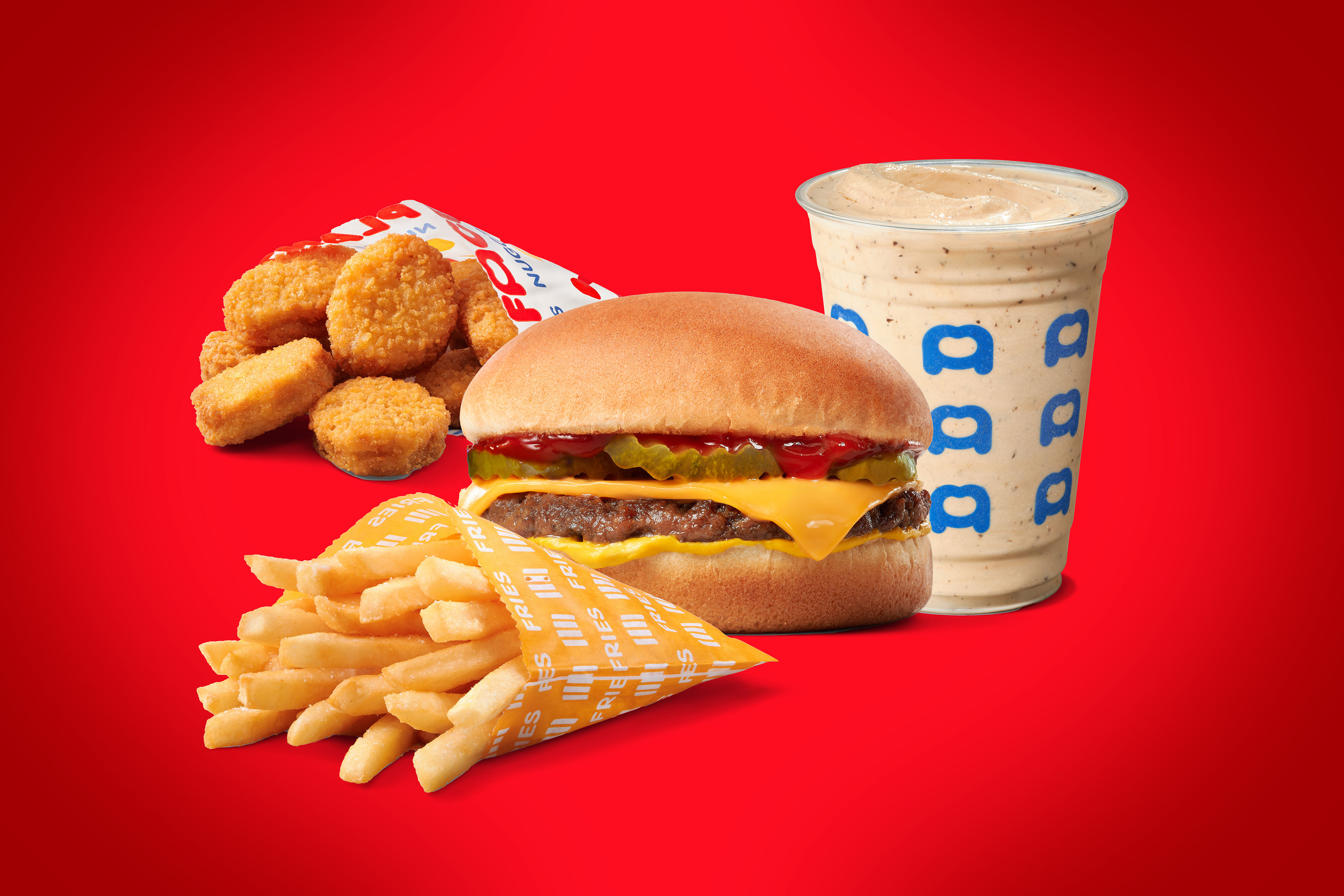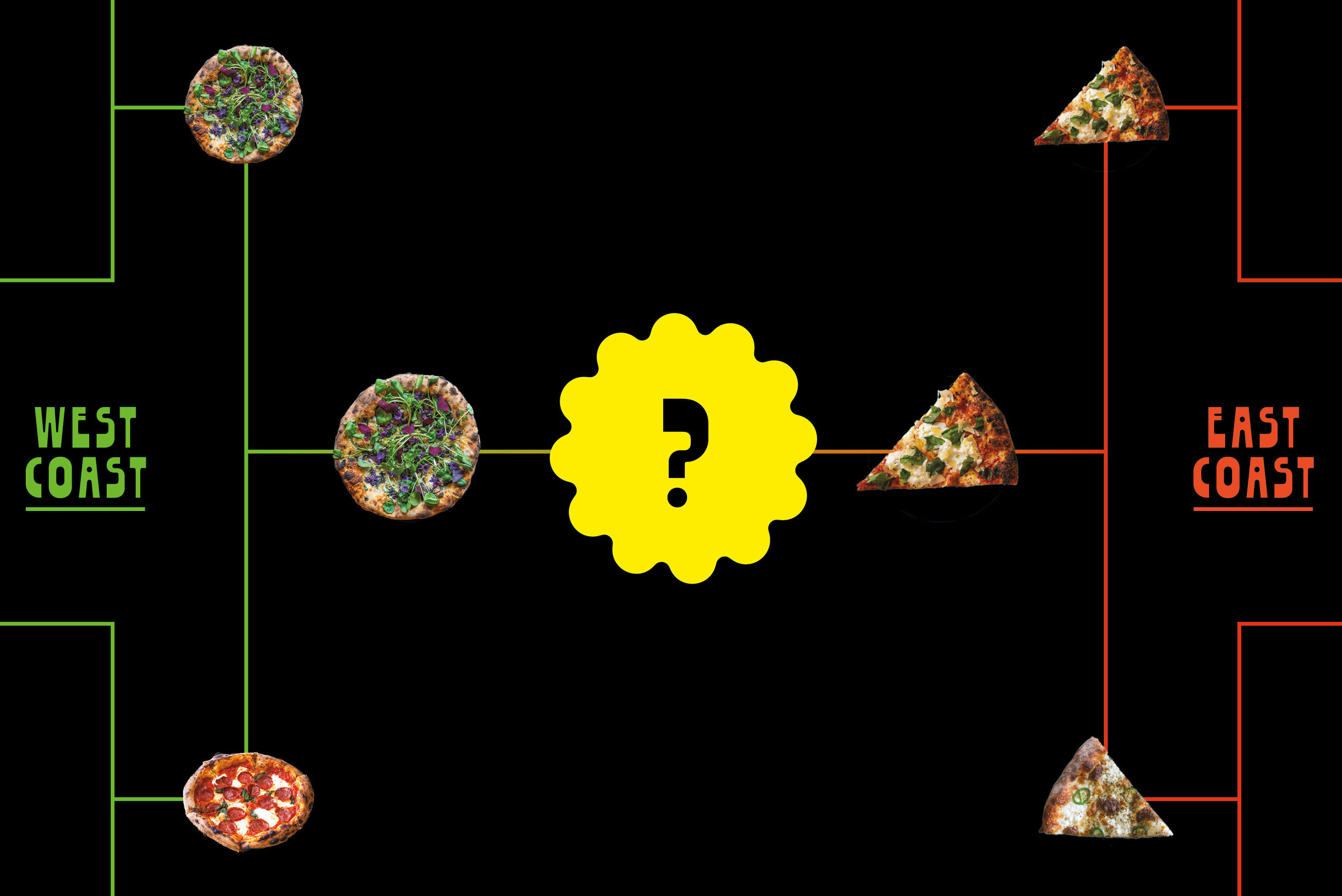From the Minds Behind Nodoguro, Tonari Re-Spins Healthy Japanese Food
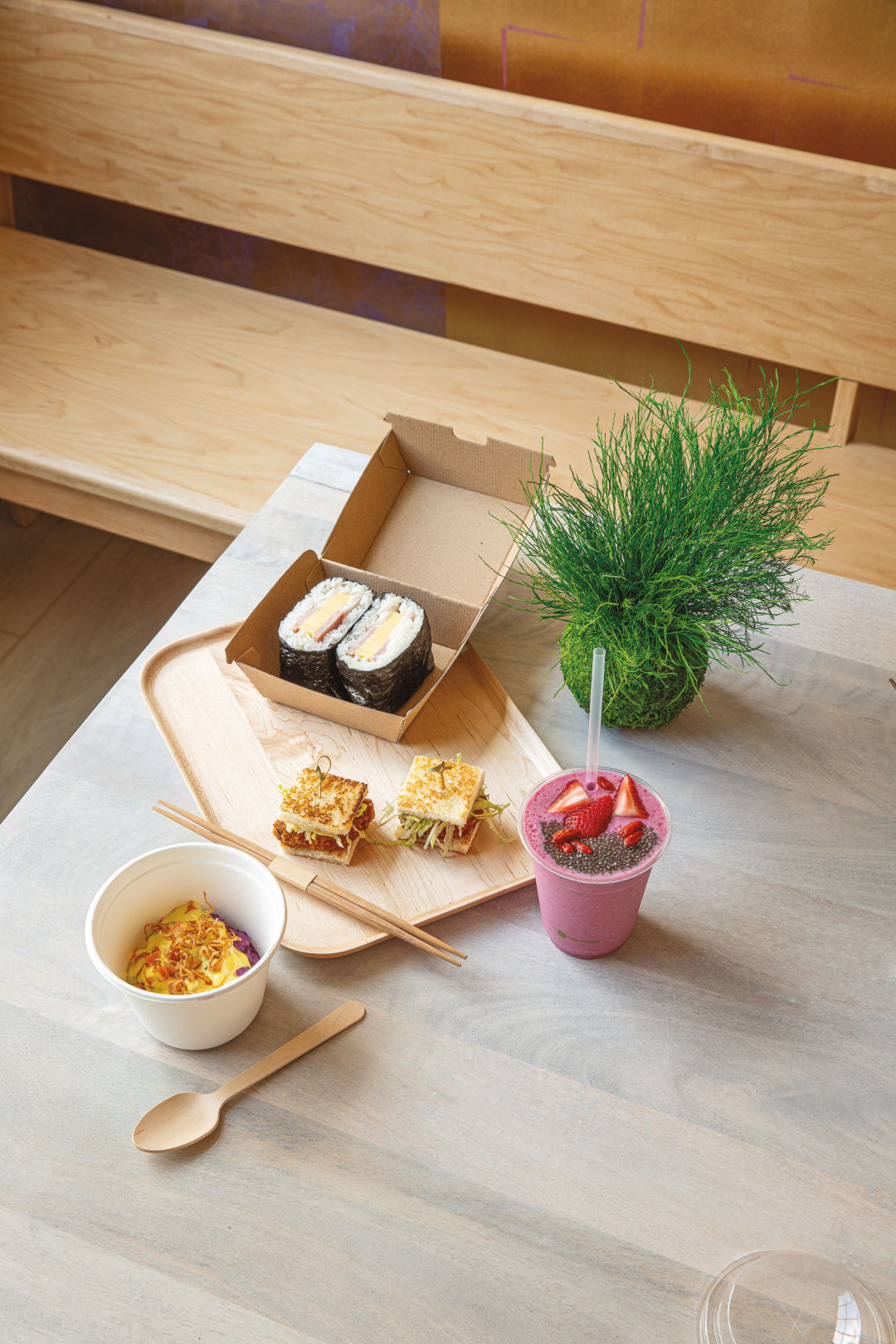
Onigirazu sandwich with ham and sweet egg omelet, strawberry tofu smoothie topped with chia seeds, purple potato salad, tonguekatsu
Image: Stuart Mullenberg
Late January 2019: Word has circulated! Ryan and Elena Roadhouse will open a casual spin-off to Nodoguro, their rule-breaking, always-booked omakase spot on Belmont. Tonari, which means “next door,” aims to bring the couple’s various obsessions under one roof—Toyko’s underground jazz café culture, old-school kissaten tea-drinking spots, and Okinawa’s happy-seeking, longevity-inducing Blue Zone diet. An architect-cum-DJ is flying in from Japan to consult on the mood. It’s an enticing prospect: a jazz haunt with drop-by eats from one of America’s best sushi chefs. The plan is to open in March.
Note to self: All planned “opening dates” for Portland restaurants should henceforth include the laughing/crying emoji.
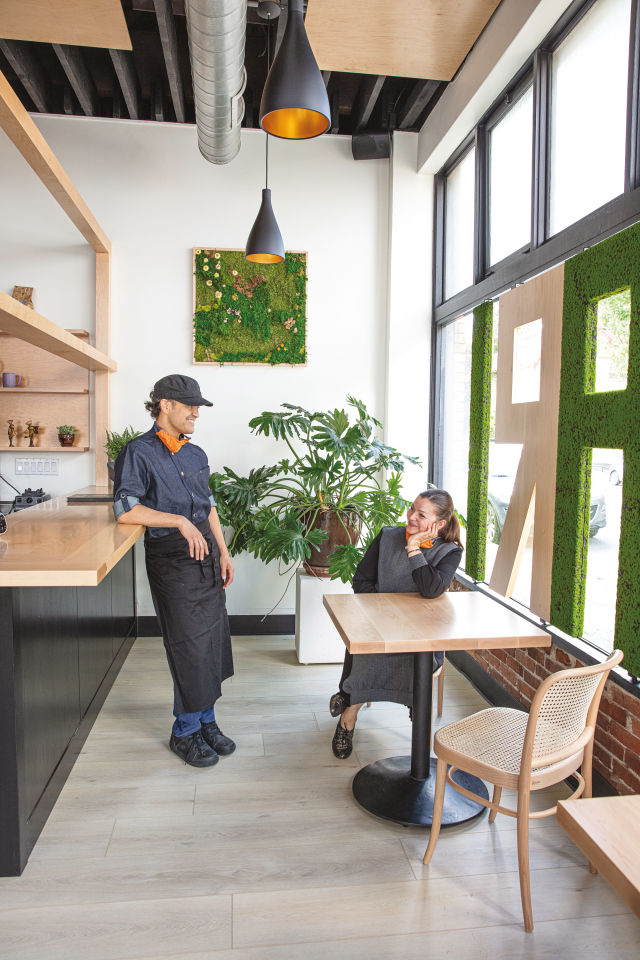
Ryan and Elena Roadhouse
Image: Stuart Mullenberg
Mid-June 2020: After various setbacks, Tonari has arrived at last, heralded only by a tight horn section honking on the turntable near the door. You could easily mistake the room for a midcentury-modern home—all giant windows, bleached Japanese maple, black hues, moss. But the vibe is something eerier: nature meets vinyl records, without people.
Behind the bar, Ryan frets over the perfect pour-over coffee, enlisting his new Hoshizaki water disperser, which includes a pH-balancing option. In the back corner, a quasi-living room with a mod leather couch and throw rug, a masked customer wanders about like a bandit in an art gallery, staring at the walls, literally, then stooping over to contemplate a teapot collection. Suddenly, Elena bursts forth, excitedly, extolling the virtues of her prized “tofu shake”... well, as much as one can burst forth while standing six feet away. Still, no one can make the words “good for your endocrines” sound sexier than Elena Roadhouse.
Laugh if you will. (I did.) But Tonari’s “tofu stamina natural protein smoothies” manage to whirl flax seeds, Thai pea flowers, organic miso, and a torrent of fruit into something ineluctably wild and lush, under a wavy float of chia seeds. I sucked mine down with a fury that surely surprised my endocrines. Like much of the food at Tonari, the idea is to create something refreshing and uplifting, but at the same time, Roadhousian ... surprising, nuanced, refined.
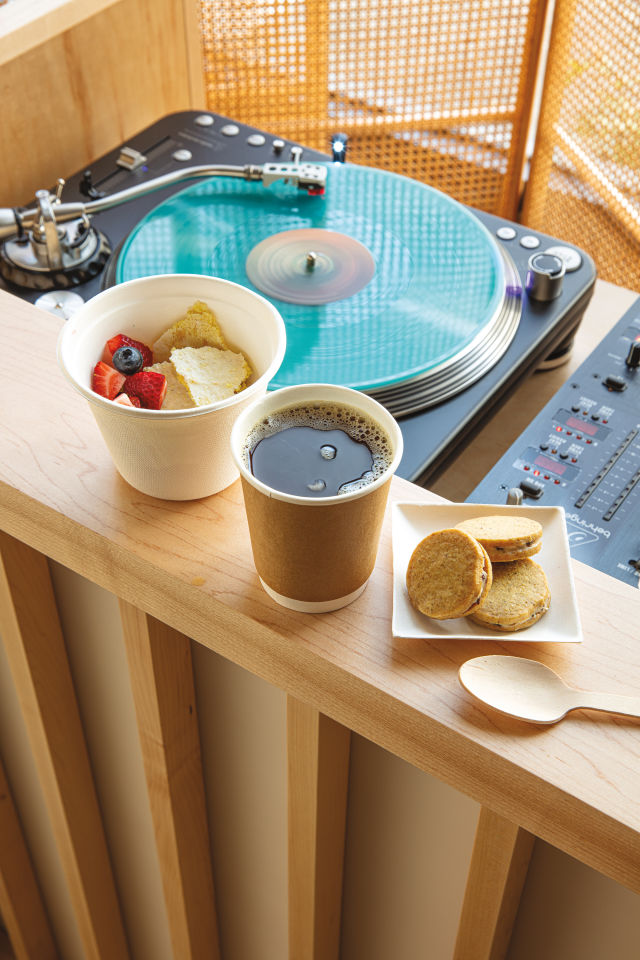
The restaurant’s inventive parfait with custardy tofu, sweet spices, and pumpkin-seeded okara, delicate pour-over coffee in compostable cup, and cornmeal sandwich cookies.
Image: Stuart Mullenberg
Those qualities bind dishes on what seems like a random menu: beautifully cut sashimi, each piece holding one sly sliver of jalapeño dynamite; a Caesar salad juggling smoked mackerel, crisp-fried burdock, and left-field umami; a mind-bending “parfait” that pairs custardy, house-made “silk tofu” with “granola” made from the thrown-away dregs of tofu-making, the okara or pulp, dried here into paper-thin sheets, toasted in butter, sugar, and turmeric. Pure, recycling genius.
I’d come back just for purple potatoes, an Okinawa essential, mashed like pie filling beneath a Russian-inflected salad of pickled cukes, smoked hard-boiled eggs, and Georgian spices, inspired by “mom’s cooking” (Elena’s mother). Or certainly the onigirazu, three kinds of giant, seaweed-clad sushi sandwiches, an idea born in the pages of the Japanese manga series Cooking Papa, but stuffed, Tonari style, with rosy ham and sweet egg omelet or a mosaic of vegetables or perhaps a thick smudge of creamy smoked trout.
The killer find? The kitchen’s “tonguekatsu” sandwich, which twists traditional tonkatsu (breaded, deep-fried pork cutlet) into shockingly tender tongue, slow-cooked in wagyu beef fat, coated in crackling panko crumbs, then parked on toasted Japanese milk bread. The secret, confides Ryan, is his house-made koji (rice spores) meat cure which, swear to god, brings out the best inherent qualities in an ingredient—a process he’s been working on since 2012. Believe it, friends: Tonari’s tonguekatsu could rope-a-dope New York pastrami.
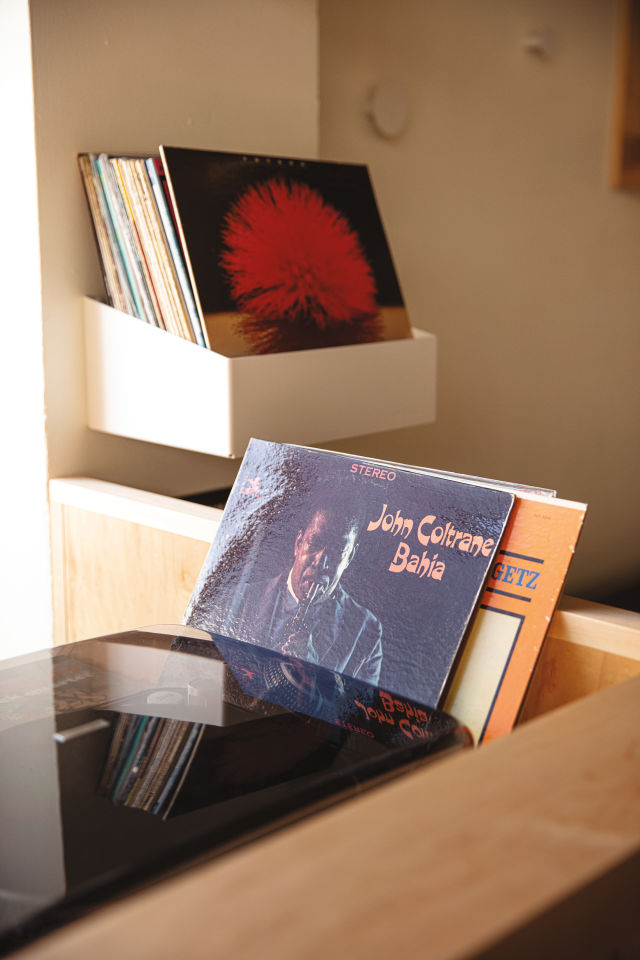
Tonari’s décor and jazz record collection
Image: Stuart Mullenberg
All of this would seem so normal: the coffee geek-out, the cult-worthy dishes, a restaurant where Japanese jazz records and decorative ceramic teacups are gifts from Nodoguro customers, and famed hip-hop drummer and food thinker Questlove, himself a Nodoguro fan, is working on a house playlist.
Except nothing is normal this summer, even a restaurant review. Hell, I can weep over a bucket of take-out jojos right now as chefs work just to keep the lights on. Tonari could do so much less and still win hearts. What’s impressive is how it has transcended the moment, feeling old but new, ambitious but adaptive, even hopeful.
Even while dining rooms are “out of order,” the Roadhouses defiantly celebrate the notion of shared space. Curbside pickup is available, sure. But Tonari invites us in, if only for a few moments, to soak in not just joy but reflection. Protests swell downtown. Portland treasure Ural Thomas, an octogenarian soul singer overlooked for much of his career, is on the turntable. The album is The Right Time. Nearby, on a shelf of house books, sits Beauty and Sadness, Nobel Prize winner Yasunari Kawabata’s lyrical dive into messy human emotions. It feels good to be here.
Tonari
2838 SE Belmont St; check hours or order online

